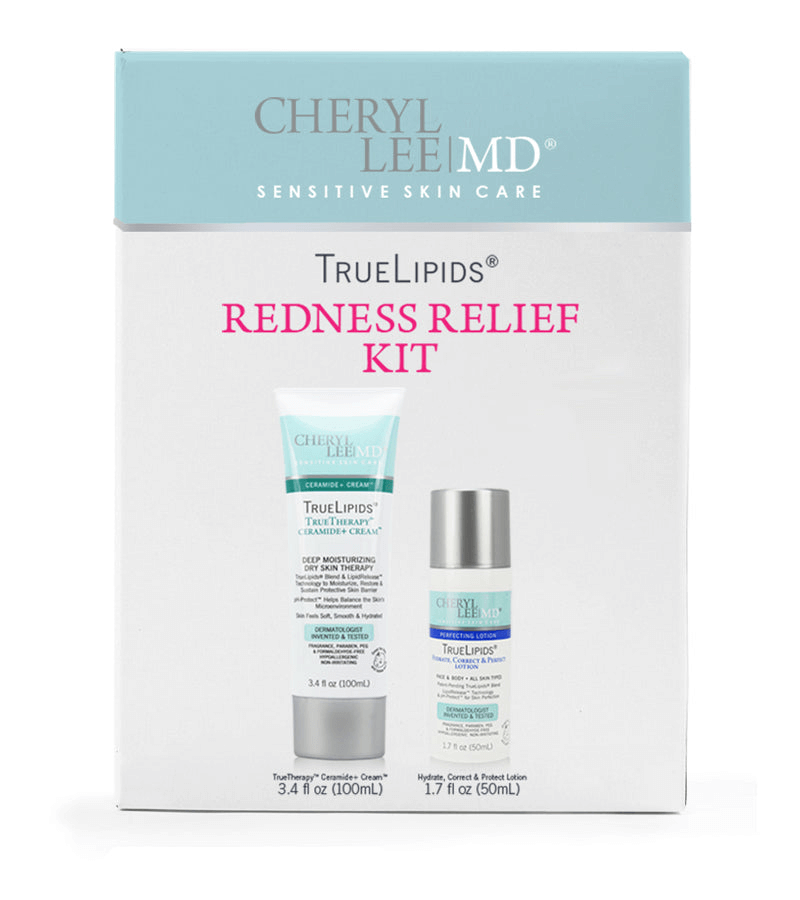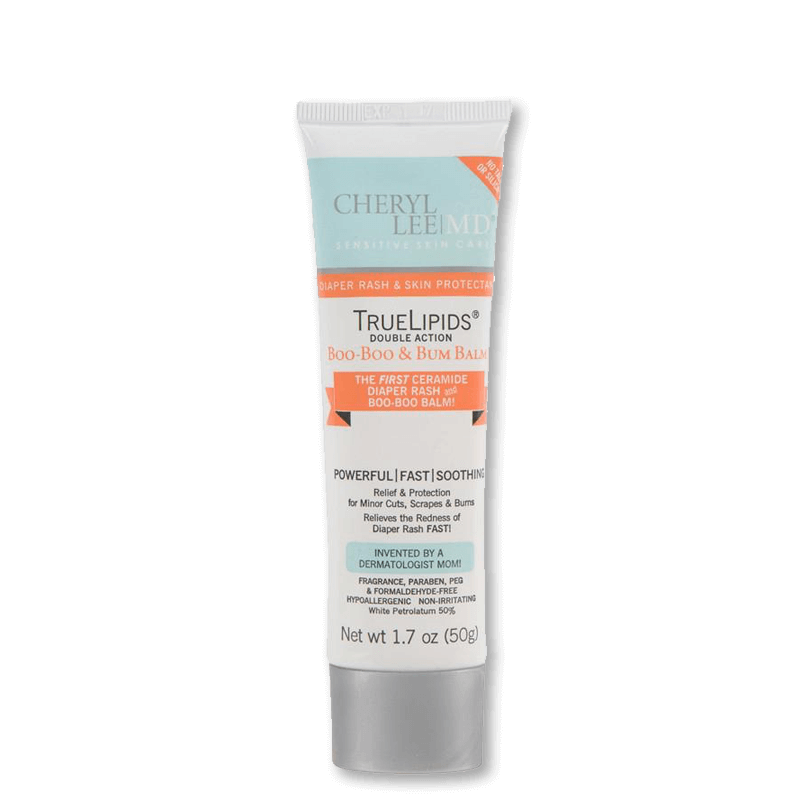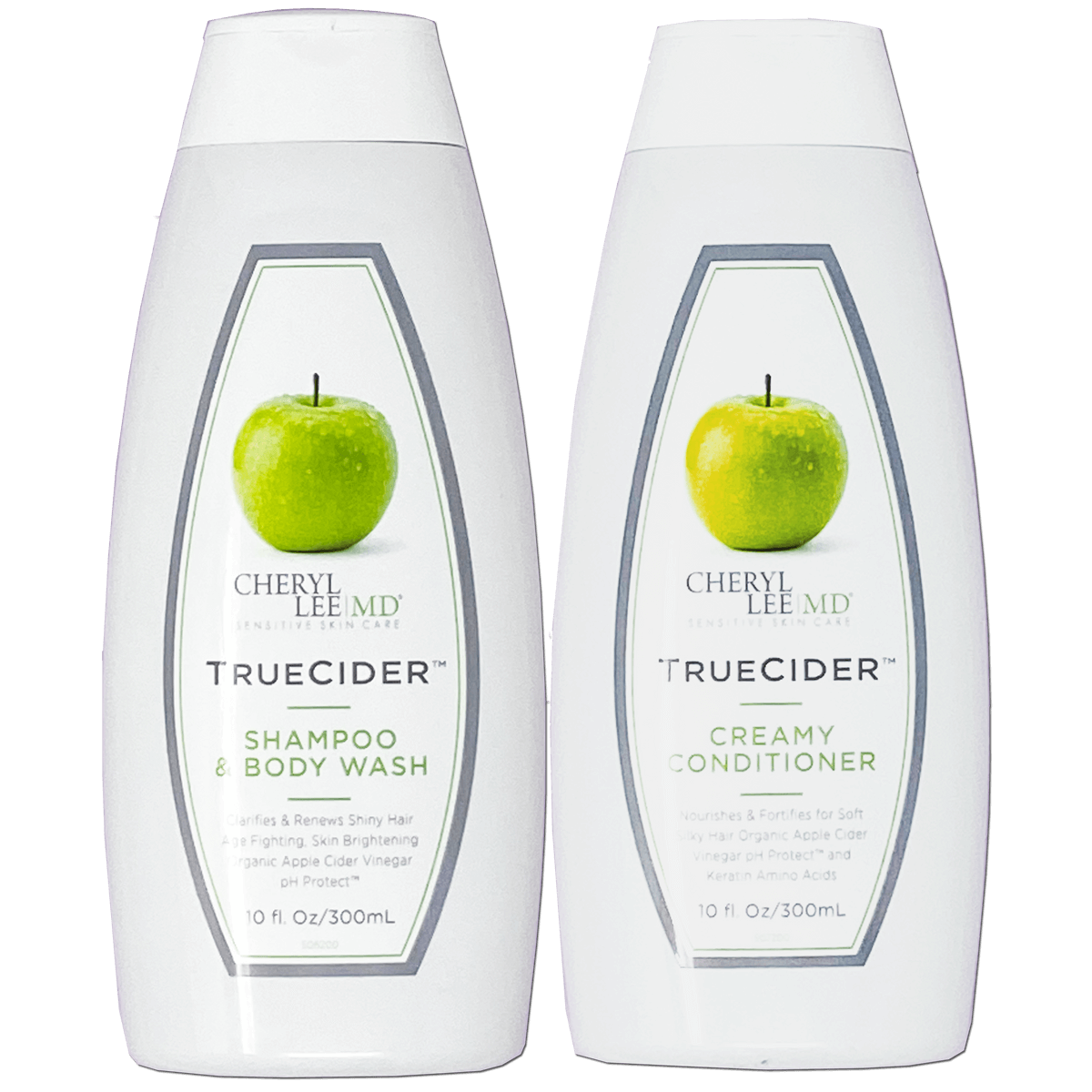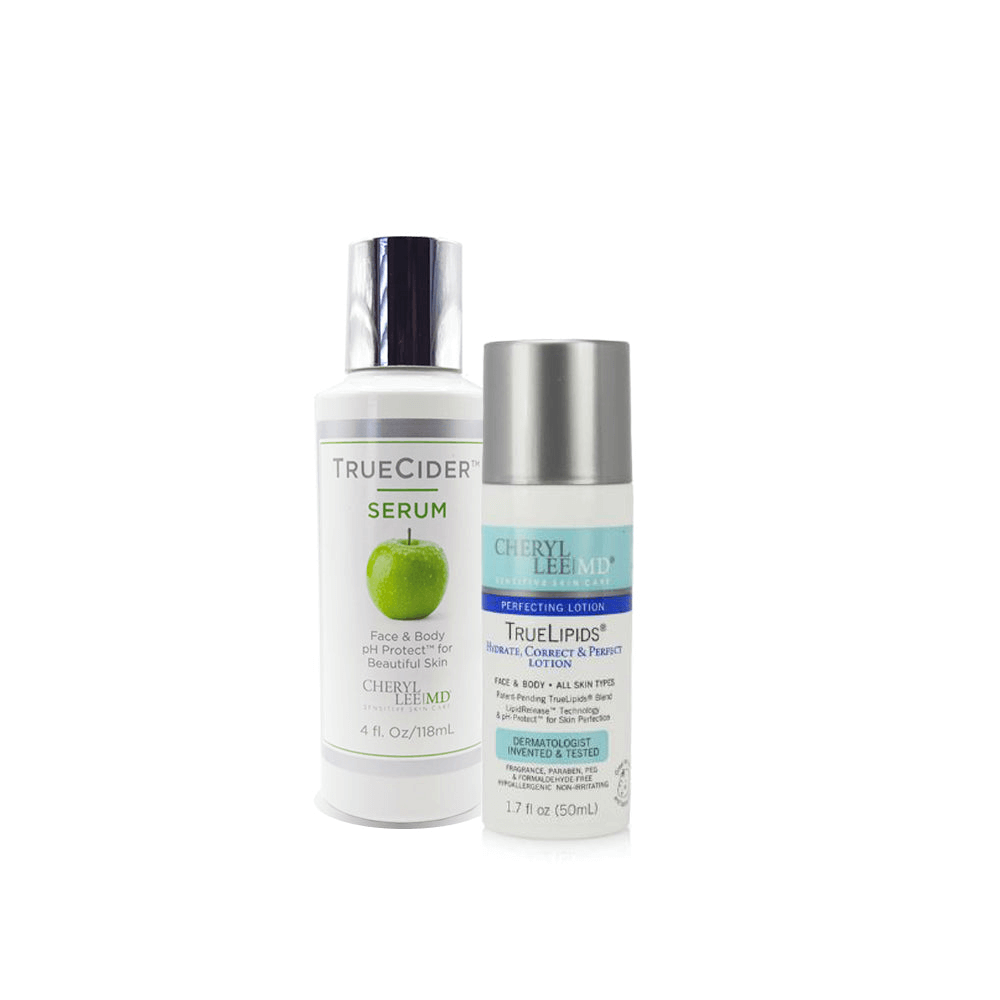I’ve had eczema ever since I was a little girl. I used to get it in the crease of my arm and my mom would spread some kind of nasty ointment on it containing fish oil — I hated the way it smelled. My eczema eventually went away, but as I’ve gotten older, it’s started to flare up again, which is such a bummer.
I’ve tried a lot of different prescription ointments, but you can’t necessarily use them every day. In a moment of desperation, I googled “eczema treatment” and discovered Cheryl Lee Eberting, MD, and her skincare line. I reached out to learn more and order some of her products, which have really helped. Dr. Eberting, who goes by Lee, definitely knows what she’s talking about, so I wanted to share her wisdom with all of you. Here's a recent conversation we had about eczema, allergens, and more.

Katie Couric: So Lee, tell me a little bit about your background because it's not a typical CV for a dermatologist.
Dr. Cheryl Lee Eberting: I would describe myself as an innovator and entrepreneur-doctor. I'm very scientifically oriented but make an effort to think outside the box, and I’m focused on the consumer experience around healthcare.
I'm a dermatologist trained at a Boston University affiliate in Providence, Rhode Island. I did a clinical research fellowship at the National Institutes of Health, where I focused on people who have severe eczema and how to treat severe eczema.
I also specialize in chemical allergies, called allergic contact dermatitis, and I've spent my dermatology career focusing on that. I developed a line of products, Cheryl Lee MD Sensitive Skincare or CLMD, for people who have sensitive skin — which is 100 percent of us.
I wanted to create products that are the most correctly engineered, from a biological standpoint, in optimizing and leveraging our skin barrier biology to enable the skin to heal itself and stay healthy in the first place.
So that's why you call yourself an entrepreneur-doctor! Let's talk about eczema because that's how I found you. I did an allergy patch test where they prick your back, and I found that I’m allergic to a lot of chemicals. Can you develop allergies later in life?
Absolutely. And that's almost always how it works. You don't just spontaneously become allergic to something you've never been exposed to. Your immune system has to be primed to become allergic to something, and then your immune system decides it's going to be allergic to it, and then you develop the allergy. As we age, our immune systems become more dysfunctional and that leads to more allergies, unfortunately.
I'm allergic to a lot of things in beauty products, particularly things in cleansers and creams. How do those allergies exacerbate eczema in people?
There is a genetic form of eczema called atopic dermatitis, which is caused by the skin's genetic inability to acidify itself. Allergic contact dermatitis is driven by the genetic form of eczema, so people who have the genetic form of eczema are more likely to also develop allergic contact dermatitis, which is eczema caused by an allergy to chemicals. They're both eczema, if that makes sense.
I must fall into both categories! Lucky me! As I’ve gotten older, I tend to get eczema on my eyelids and in my nasolabial folds. Why do people often get eczema in those areas?
The pH in the folds of your skin is even higher than elsewhere on the body. A high pH environment is conducive to the growth of bacteria. Then inflammation sets in, and the inflammation triggers allergies to chemicals that come in contact with the skin, and the skin barrier breaks down — it’s a vicious cycle!
It’s important to understand the difference between allergic contact dermatitis and atopic dermatitis. What you experienced as a child was atopic dermatitis, which is a form of eczema that's caused by the skin's inability to acidify itself.
Allergic contact dermatitis is caused by your immune system deciding it's going to be allergic to certain chemicals. Your immune system, because of the overly elevated pH in your skin, triggers the inflammatory pathways in your skin that cause allergic contact dermatitis, which is what causes you to be allergic to chemicals that are being applied to your skin. And an extra elevated pH is genetic.
What are some of the most common allergens that cause contact dermatitis?
Eyelid dermatitis, or eczema around your eyes, is often caused by things like fragrances, including essential oils. These fragrances can be in your moisturizers, perfume that you spray around your face, or your hair care, for example.
The next thing is metals. Nickel is the number one most common metal allergen in the world. It's found in jewelry, the snaps on your pants, etc. Up to 92 percent of people who have the genetic form of eczema are allergic to nickel. So if you're genetically predisposed to atopic dermatitis, your rates of allergic contact dermatitis are much higher.
Other metals like cobalt, chromates, and gold can cause reactions, too. Jewelry from your hands can be transferred to your eyes and cause eczema around your eyes, believe it or not.
Oftentimes people who have eyelid dermatitis go do patch testing and find out, "Oh, I'm allergic to gold, and I wear three rings." They get rid of the rings, and they get rid of the eyelid dermatitis.
Topical antibiotics like bacitracin and neomycin, which are found in Neosporin, are also some of the most common contact allergens in the world. Patients often come to me thinking they have a wound infection, but they have a roaring case of allergic contact dermatitis that looks like an infection because they’re allergic to Neosporin.
You don't need to use topical antibiotics anytime you have a cut or a scrape — it's the wound care that helps, not necessarily the antibiotic. So, I developed a wound care ointment that has no antibiotics for people with sensitivities.
Gosh, who knew? I know that sometimes shampoos and conditioners can also irritate your skin because obviously, they get on your face and other parts of your body. Is that caused by the lathering ingredients?
It's the lathering ingredients and the preservatives and fragrances. A preservative system called MCI/MI [Methylchloroisothiazolinone] is used in almost all hand soaps, shampoos, and conditioners, and it's a very common contact allergen.
Another class of preservatives that are almost always used in personal care products is called formaldehyde releasers. These are not only possibly carcinogenic, but they’re also allergenic. The surfactants that are used to make a soap sudsy are also allergenic.
Are those sulfates?
Yes. But there are other sudsing chemicals beyond the sulfates; there are glycosides and other surfactants that are problematic in shampoos and conditioners as well.
You developed a line of products for people like me who have über-sensitive skin and who have both atopic dermatitis and allergic contact dermatitis, which are subsets of eczema. What did you strive to do when you approached making these products?
My goal was to create something that anyone could use, even people who have the most sensitive skin. My priority was ensuring all my products were free of teratogens and mutagens, which are chemicals that can cause birth defects. No reproductive hormone disruptors, no toxic environmental persisters, and no allergens, either.
It’s really hard to make something that's cosmetically elegant and super effective. In addition to not wanting any of those chemicals, I wanted to leverage your skin barrier biology to help your skin stay healthy and heal itself.
There are six things that are abnormal in almost all forms of eczema, inflammation, or skin diseases:
- The skin barrier pH is too high. When your skin barrier pH is too high, you have bacteria that moves into your skin, so you're prone to infection. When you're prone to infection, that can exacerbate things like acne, eczema, and rosacea. In addition, when pH is too high, your skin cannot make the fats or lipids that protect it — which are also naturally antibacterial.
- Lipid production. Your skin barrier manufactures normal lipids that keep your skin moisturized and youthful, and they also protect you from developing allergies and infections.
- Inflammation. High pH and missing lipids trigger inflammation. The way that your skin sloughs off is also controlled by your pH — get the pH under control, and you can correct all of these things automatically.
- Infection. Again, the skin barrier lipids need to be present and the pH needs to be in the right range to prevent bacteria from growing.
- Cell cycling, or the way your skin naturally sloughs off. This is controlled by your calcium gradients, which are also related to your skin barrier pH. The removal of chemicals that can cause allergies.
When I created these products, obviously the first thing I knew that had to be done was make something that would fix the skin’s pH levels. To do that, you have to use non-irritating chemicals that augment the skin, fixing all of the downstream problems simultaneously.
And how do your products do that?
We have two product lines. One is called TrueLipids, which is a skin barrier optimization and moisturizer line. The other one is called TrueCider, and it’s a cleanser and skin barrier acidification line. They work synergistically.
Step one: Acidify your skin. Step two: Moisturize your skin so it can heal itself. That's the philosophy that we took to create these products.
You’ve got shampoo and conditioner in your TrueCider line, too. I have to admit, sometimes I miss the sudsiness of my old shampoo, Dr. Lee.
I'm with you. But there's a payoff, right? It’s either having an allergic reaction or not having one. Our shampoo is more of a creamy cleanser type of shampoo, but you'll notice if you curl your hair or if you have curly hair, it helps your hair hold its body, so that’s one benefit you get from a lack of suds!
My eczema gets much worse in the winter. Is that because my skin is drier and more sensitive?
In the winter, the air becomes drier and so your skin becomes drier. It's important to moisturize with products that augment your skin barrier by replacing barrier lipids. These lipids are what help the skin hold onto water. The TrueLipids products are a patented blend of lipids that replace those that become deficient as you age and also deficient if you have allergic contact dermatitis or atopic dermatitis, and which you need more of during the winter.
Thank you so much, Lee; I've really appreciated your products.
I'm glad we were able to help.

















